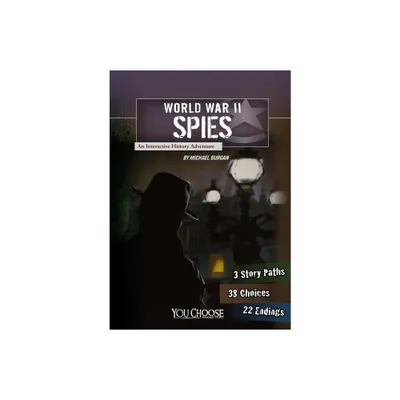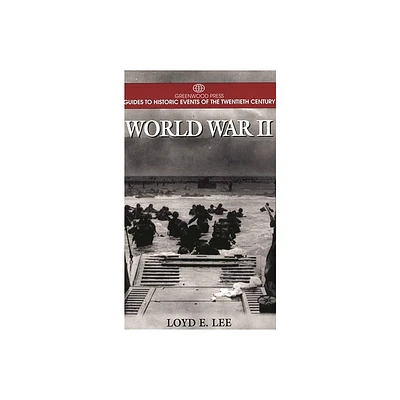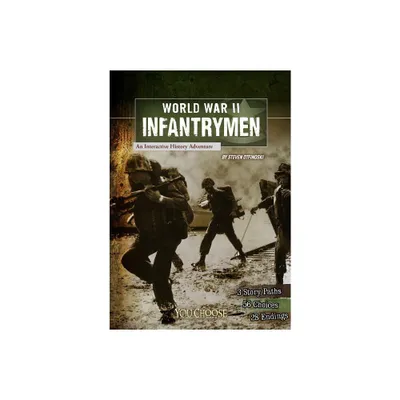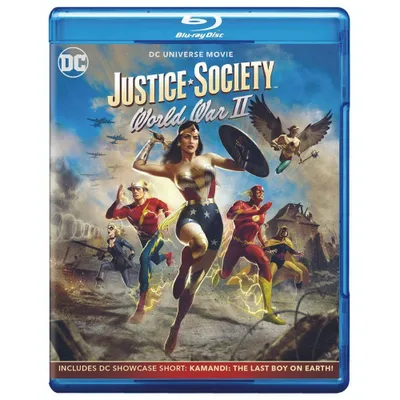Home
Justice Matters: Legacies of the Holocaust and World War II
Loading Inventory...
Barnes and Noble
Justice Matters: Legacies of the Holocaust and World War II
Current price: $67.00


Barnes and Noble
Justice Matters: Legacies of the Holocaust and World War II
Current price: $67.00
Loading Inventory...
Size: OS
*Product Information may vary - to confirm product availability, pricing, and additional information please contact Barnes and Noble
In the fall of 1992, in a small room in Boston, MA, an extraordinary meeting took place. For the first time, the sons and daughters of Holocaust victims met face-to-face with the children of Nazis for a fascinating research project to discuss the intersections of their pasts and the painful legacies that history has imposed on them. Taking that remarkable gathering as its starting point,
Justice Matters
illustrates how the psychology of hatred and ethnic resentments is passed from generation to generation. Psychologist Mona Weissmark, herself the child of Holocaust survivors, argues that justice is profoundly shaped by emotional responses. In her in-depth study of the legacy encountered by these children, Weissmark found, not surprisingly, that in the face of unjust treatment, the natural response is resentment and deep anger-and, in most cases, an overwhelming need for revenge. Weissmark argues that, while legal systems offer a structured means for redressing injustice, they have rarely addressed the emotional pain, which, left unresolved, is then passed along to the next generation-leading to entrenched ethnic tension and group conflict.
In the grim litany of twentieth-century genocides, few events cut a broader and more lasting swath through humanity than the Holocaust. How then would the offspring of Nazis and survivors react to the idea of reestablishing a relationship? Could they talk to each other without open hostility? Could they even attempt to imagine the experiences and outlook of the other? Would they be willing to abandon their self-definition as aggrieved victims as a means of moving forward?
Central to the perspectives of each group, Weissmark found, were stories, searing anecdotes passed from parent to grandchild, from aunt to nephew, which personalized with singular intensity the experience. She describes how these stories or "legacies" transmit moral values, beliefs and emotions and thus freeze the past into place. For instance, cdxfmerged that most children of Nazis reported their parents told them stories about the war whereas children of survivors reported their parents told them stories about the Holocaust. The daughter of a survivor said: "I didn't even know there was a war until I was a teenager. I didn't even know fifty million people were killed during the war I thought just six million Jews were killed." While the daughter of a Nazi officer recalled: "I didn't know about the concentration-camps until I was in my teens. First I heard about the [Nazi] party. Then I heard stories about the war, about bombs falling or about not having food."
At a time when the political arena is saturated with talk of justice tribunals, reparations, and revenge management,
provides valuable insights into the aftermath of ethnic and religious conflicts around the world, from Rwanda to the Balkans, from Northern Ireland to the Middle East. The stories recounted here, and the lessons they offer, have universal applications for any divided society determined not to let the ghosts of the past determine the future.
Justice Matters
illustrates how the psychology of hatred and ethnic resentments is passed from generation to generation. Psychologist Mona Weissmark, herself the child of Holocaust survivors, argues that justice is profoundly shaped by emotional responses. In her in-depth study of the legacy encountered by these children, Weissmark found, not surprisingly, that in the face of unjust treatment, the natural response is resentment and deep anger-and, in most cases, an overwhelming need for revenge. Weissmark argues that, while legal systems offer a structured means for redressing injustice, they have rarely addressed the emotional pain, which, left unresolved, is then passed along to the next generation-leading to entrenched ethnic tension and group conflict.
In the grim litany of twentieth-century genocides, few events cut a broader and more lasting swath through humanity than the Holocaust. How then would the offspring of Nazis and survivors react to the idea of reestablishing a relationship? Could they talk to each other without open hostility? Could they even attempt to imagine the experiences and outlook of the other? Would they be willing to abandon their self-definition as aggrieved victims as a means of moving forward?
Central to the perspectives of each group, Weissmark found, were stories, searing anecdotes passed from parent to grandchild, from aunt to nephew, which personalized with singular intensity the experience. She describes how these stories or "legacies" transmit moral values, beliefs and emotions and thus freeze the past into place. For instance, cdxfmerged that most children of Nazis reported their parents told them stories about the war whereas children of survivors reported their parents told them stories about the Holocaust. The daughter of a survivor said: "I didn't even know there was a war until I was a teenager. I didn't even know fifty million people were killed during the war I thought just six million Jews were killed." While the daughter of a Nazi officer recalled: "I didn't know about the concentration-camps until I was in my teens. First I heard about the [Nazi] party. Then I heard stories about the war, about bombs falling or about not having food."
At a time when the political arena is saturated with talk of justice tribunals, reparations, and revenge management,
provides valuable insights into the aftermath of ethnic and religious conflicts around the world, from Rwanda to the Balkans, from Northern Ireland to the Middle East. The stories recounted here, and the lessons they offer, have universal applications for any divided society determined not to let the ghosts of the past determine the future.




![Justice Society: World War II [Blu-ray]](https://prodimage.images-bn.com/pimages/0883929729111_p0_v2_s600x595.jpg)













